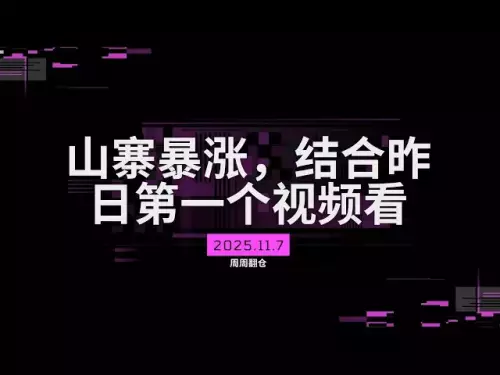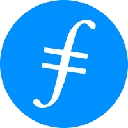-
 bitcoin
bitcoin $100977.009184 USD
-2.05% -
 ethereum
ethereum $3282.009150 USD
-3.23% -
 tether
tether $0.999813 USD
-0.02% -
 xrp
xrp $2.208254 USD
-4.89% -
 bnb
bnb $951.411089 USD
0.55% -
 solana
solana $155.761205 USD
-2.84% -
 usd-coin
usd-coin $1.000217 USD
0.02% -
 tron
tron $0.284475 USD
-1.28% -
 dogecoin
dogecoin $0.162363 USD
-1.53% -
 cardano
cardano $0.533988 USD
-0.47% -
 hyperliquid
hyperliquid $39.174339 USD
-3.22% -
 chainlink
chainlink $14.724828 USD
-1.16% -
 bitcoin-cash
bitcoin-cash $477.297986 USD
-1.28% -
 zcash
zcash $554.227426 USD
17.30% -
 ethena-usde
ethena-usde $0.998995 USD
-0.03%
Does Trust Wallet charge a fee to receive crypto?
Trust Wallet does not charge fees for receiving cryptocurrency; users only pay standard network gas fees when sending.
Jul 10, 2025 at 02:07 pm
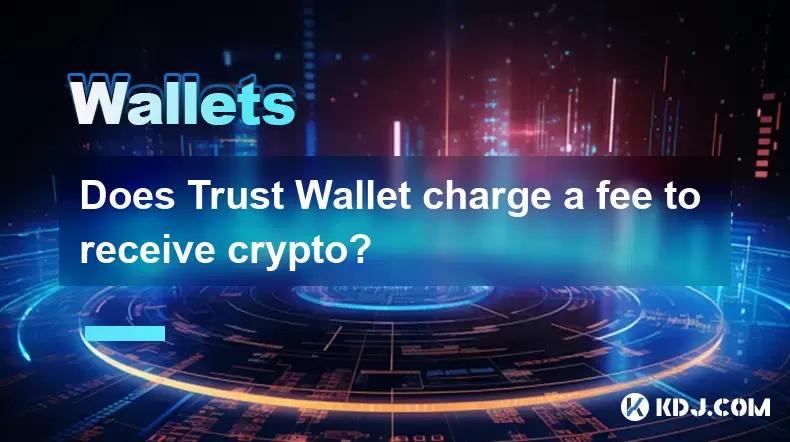
Understanding Trust Wallet and Its Core Functionality
Trust Wallet is a popular mobile wallet that allows users to store, manage, and transact various cryptocurrencies. It supports a wide range of blockchain assets including Bitcoin (BTC), Ethereum (ETH), Binance Coin (BNB), and numerous ERC-20 and BEP-20 tokens. One of the primary functions of any crypto wallet is the ability to receive digital assets from other wallets or exchanges.
A common question among new users is whether Trust Wallet charges a fee for receiving cryptocurrency. To clarify this, it’s essential to understand how crypto wallets work. Unlike centralized exchanges that often impose transaction fees for deposits and withdrawals, most non-custodial wallets like Trust Wallet do not charge fees directly for sending or receiving funds.
Do You Pay Fees When Receiving Crypto on Trust Wallet?
The straightforward answer is: no, Trust Wallet does not charge a fee for receiving cryptocurrency. When you send or receive crypto using Trust Wallet, the only fees involved are network fees, also known as gas fees. These fees are paid to the miners or validators of the respective blockchain network and are not collected by Trust Wallet itself.
For example, if someone sends Ethereum (ETH) to your Trust Wallet address, the sender pays the gas fee required by the Ethereum network to process the transaction. Similarly, when you receive BNB or BEP-20 tokens, the sender must pay the BSC (Binance Smart Chain) gas fee.
It's important to note that while Trust Wallet doesn't collect fees for incoming transactions, outgoing transactions require users to pay network fees, which vary depending on network congestion and transaction speed settings.
How Network Fees Work in Trust Wallet
When making outgoing transactions, users can adjust the gas price and gas limit to influence how quickly their transaction gets confirmed. Here's how you can view and customize these settings:
- Open the Trust Wallet app
- Navigate to the wallet of the cryptocurrency you're sending
- Tap on 'Send'
- Enter the recipient's address and the amount
- Tap on 'Gas' or 'Advanced Options'
- Adjust the gas price and gas limit according to your preference
Higher gas prices usually mean faster confirmations, while lower gas prices may result in slower processing times. This system ensures that users have control over the cost and speed of their transactions.
Receiving Tokens vs. Native Coins
Another aspect to consider is the difference between receiving native coins like ETH or BNB and tokens built on top of those blockchains, such as ERC-20 or BEP-20 tokens.
To receive ERC-20 tokens, your Trust Wallet must have a small balance of ETH to cover future gas fees when you decide to send those tokens. Similarly, BEP-20 tokens require a small amount of BNB for gas. However, simply receiving these tokens does not incur any additional fees beyond what the sender already pays.
In some cases, users might mistakenly think they are being charged when they attempt to send tokens without enough native coin for gas. This is not a fee imposed by Trust Wallet but rather a requirement of the underlying blockchain.
What About NFTs and Other Assets?
Trust Wallet also supports NFTs (Non-Fungible Tokens), which are typically stored on the Ethereum or Binance Smart Chain networks. Similar to regular tokens, receiving NFTs does not involve any fee from Trust Wallet. The sender pays the network fee, and you simply accept the NFT into your wallet.
If you want to transfer or sell the NFT later, you will need to pay the appropriate gas fee based on the network it resides on. Again, this is not a fee charged by Trust Wallet but by the blockchain network.
Frequently Asked Questions
Q1: Can I receive crypto on Trust Wallet without any native coins in my wallet?Yes, you can receive tokens or NFTs even if your wallet has no native coins. However, to send or interact with those assets later, you’ll need to have sufficient native coins (like ETH or BNB) to cover gas fees.
Q2: Why does Trust Wallet ask for gas fees if it doesn’t charge any fees?Gas fees are required by the blockchain network to process transactions. Trust Wallet acts as an interface to the blockchain and passes these costs directly to the user without adding any markup.
Q3: Is there a minimum amount needed to receive crypto on Trust Wallet?No, there is no minimum amount. You can receive any amount of crypto, although very small amounts may be uneconomical due to future gas costs when trying to move them.
Q4: Are there any hidden fees when using Trust Wallet?Trust Wallet does not impose hidden fees. All outgoing transactions require payment of network gas fees, which are visible before confirming the transaction. There are no subscription or maintenance fees either.
Disclaimer:info@kdj.com
The information provided is not trading advice. kdj.com does not assume any responsibility for any investments made based on the information provided in this article. Cryptocurrencies are highly volatile and it is highly recommended that you invest with caution after thorough research!
If you believe that the content used on this website infringes your copyright, please contact us immediately (info@kdj.com) and we will delete it promptly.
- BlockDAG, Avalanche, Dogecoin: Crypto's Leading Trio in 2025
- 2025-11-07 22:05:01
- Layer 2 Coins: Will There Be a Potential Explosion by 2026?
- 2025-11-07 16:50:02
- Filecoin, ICP, and the AI Infrastructure Renaissance: Is History Repeating?
- 2025-11-07 16:50:02
- Bitcoin's Wild Ride: Surges, Zeros, and the Search for Stability
- 2025-11-07 17:05:01
- XRP, Bitcoin, and the Rally: What's the Deal, New York?
- 2025-11-07 17:25:01
- Filecoin, DePIN, and a Technical Breakout: What's the Buzz?
- 2025-11-07 17:05:01
Related knowledge
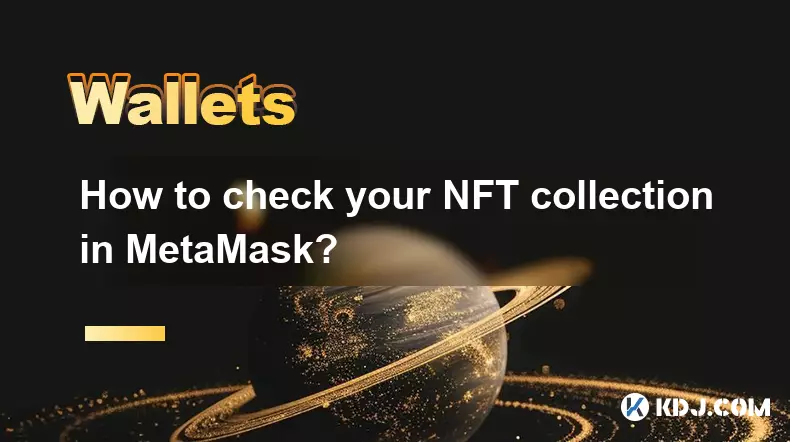
How to check your NFT collection in MetaMask?
Nov 06,2025 at 08:20pm
Accessing Your NFTs in MetaMask Wallet1. Open the MetaMask browser extension or mobile app and ensure you are logged into your wallet account. Once in...

Why is the MetaMask swap feature failing?
Nov 06,2025 at 09:20pm
Understanding MetaMask Swap FailuresMetaMask, one of the most widely used cryptocurrency wallets, enables users to swap tokens directly within the int...

How to import an account into MetaMask using a private key?
Nov 07,2025 at 07:40am
Importing an Account into MetaMask with a Private KeyMetaMask is one of the most widely used cryptocurrency wallets, particularly within decentralized...

What to do if my MetaMask wallet was compromised?
Nov 06,2025 at 04:59pm
Immediate Steps to Take After a Compromised MetaMask Wallet1. Disconnect your device from any phishing websites immediately. If you clicked on a suspi...
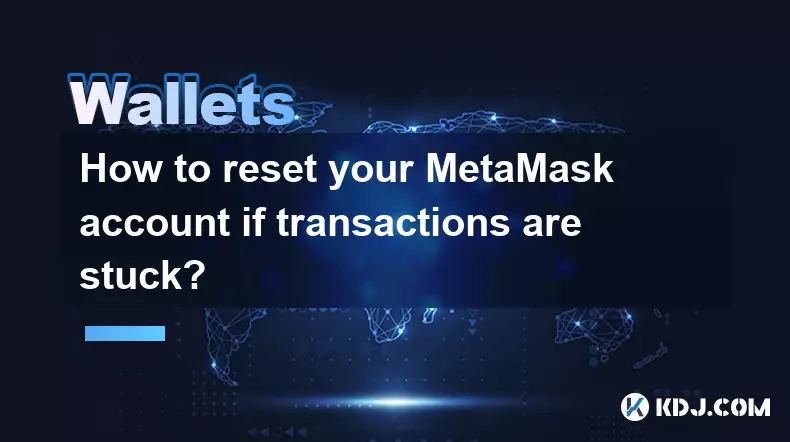
How to reset your MetaMask account if transactions are stuck?
Nov 06,2025 at 05:39pm
Understanding the MetaMask Account Reset Process1. When transactions appear stuck in MetaMask, users often consider resetting their account to resolve...
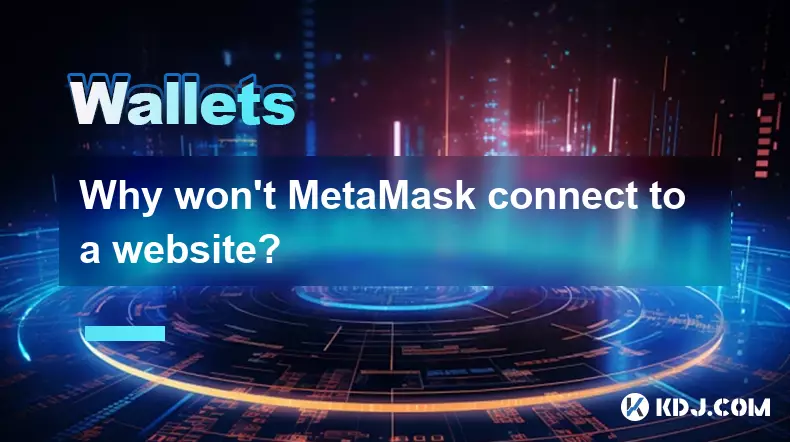
Why won't MetaMask connect to a website?
Nov 07,2025 at 06:40am
Common Reasons MetaMask Fails to Connect to Websites1. The browser extension is not properly installed or activated. Users may think MetaMask is ready...

How to check your NFT collection in MetaMask?
Nov 06,2025 at 08:20pm
Accessing Your NFTs in MetaMask Wallet1. Open the MetaMask browser extension or mobile app and ensure you are logged into your wallet account. Once in...

Why is the MetaMask swap feature failing?
Nov 06,2025 at 09:20pm
Understanding MetaMask Swap FailuresMetaMask, one of the most widely used cryptocurrency wallets, enables users to swap tokens directly within the int...

How to import an account into MetaMask using a private key?
Nov 07,2025 at 07:40am
Importing an Account into MetaMask with a Private KeyMetaMask is one of the most widely used cryptocurrency wallets, particularly within decentralized...

What to do if my MetaMask wallet was compromised?
Nov 06,2025 at 04:59pm
Immediate Steps to Take After a Compromised MetaMask Wallet1. Disconnect your device from any phishing websites immediately. If you clicked on a suspi...

How to reset your MetaMask account if transactions are stuck?
Nov 06,2025 at 05:39pm
Understanding the MetaMask Account Reset Process1. When transactions appear stuck in MetaMask, users often consider resetting their account to resolve...

Why won't MetaMask connect to a website?
Nov 07,2025 at 06:40am
Common Reasons MetaMask Fails to Connect to Websites1. The browser extension is not properly installed or activated. Users may think MetaMask is ready...
See all articles

















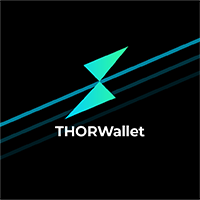



![The Graph Price Prediction [GRT Crypto Price News Today] The Graph Price Prediction [GRT Crypto Price News Today]](/uploads/2025/11/07/cryptocurrencies-news/videos/690d4df44fe69_image_500_375.webp)



